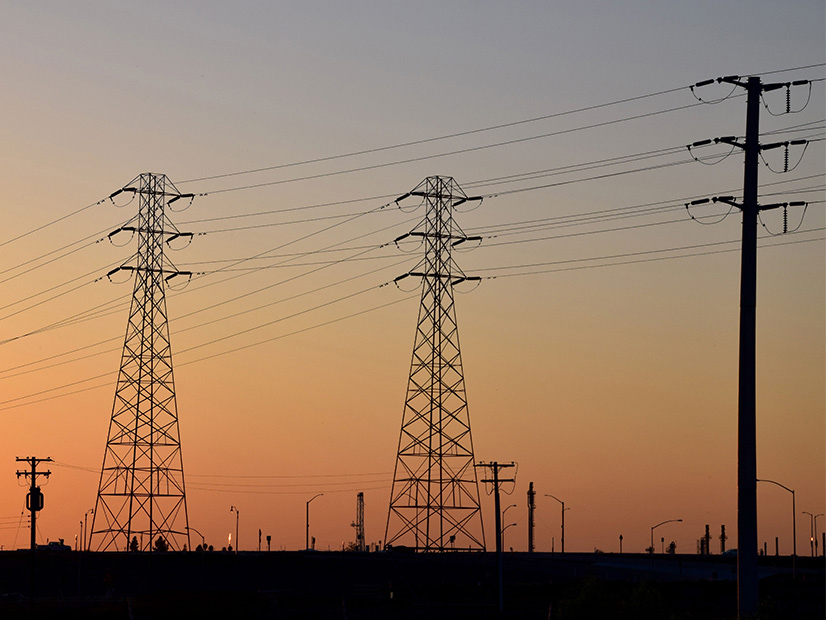Twenty-two consumer and advocacy groups from across the U.S. filed a complaint with FERC Dec. 19 contending that the local transmission planning processes overseen by the commission demonstrate widespread inefficiencies that needlessly incur costs for electricity ratepayers.
The Industrial Energy Consumers of America (IECA), American Forest & Paper Association, R Street Institute, Public Citizen, Maryland Office of People’s Counsel, Pennsylvania Office of Consumer Advocate and other consumer groups filed the lengthy complaint against ISO/RTOs, utilities outside the organized markets and jurisdictional utilities with local planning processes.
“FERC’s stated mission is to ‘assist consumers in obtaining reliable, safe, secure and economically efficient energy services at a reasonable cost through appropriate regulatory and market means, and collaborative efforts,’” IECA President Paul Cicio said in a statement. “FERC has failed in its mission to deliver ‘just and reasonable’ transmission rates.”
He added that while the commission has required regional planning for three decades as an essential component to just and reasonable rates, it has continued to allow individual transmission owners to plan electric infrastructure critical to the nation’s economy and security based on their individual corporate interests and increasing their profits.
“Complainants demonstrate that provisions in the tariffs of the named public utilities and the RTOs/ISOs inappropriately authorize individual transmission owners to plan FERC-jurisdictional transmission facilities at 100 kV and above without regard to whether such local planning approach is the more efficient or cost-effective transmission project for the interconnected transmission grid and cost-effective for electric consumers,” the complaint said.
“Local planning, coupled with the absence of an independent transmission system planner, has produced inefficient planning and projects that are not cost-effective, resulting in unjust and unreasonable rates for both individual projects and cumulative regional transmission plans and portfolios,” it said.
FERC has a statutory requirement to protect consumers from excessive rates and charges, and is required to protect the public interest, as distinguished from the private interests of utilities, the complaint said.
“The commission has not fulfilled its statutory obligation to ensure just and reasonable, non-discriminatory transmission rates and practices affecting those rates because existing local planning tariffs allow individual transmission owners to plan FERC-jurisdictional transmission facilities at 100 kV and above without regard to whether it is the right project for the interconnected grid, resulting in unjust and unreasonable rates,” the complainants wrote.
FERC discussed the drawbacks to such local transmission planning processes in Order 1920 but did not change anything, saying such concerns were outside the scope of the proceeding that produced the transmission planning rule, they contended.
‘Shareholder Directives’
The complaint notes that PJM’s territory has 1,584 locally planned transmission projects valued at $18.1 billion with expected in service dates from Jan. 1, 2024, until Dec. 31, 2028.
“Those projects, like locally planned projects across the country, receive only a superficial, if any, independent review and thus there is no assurance that they represent efficient or cost-effective projects for consumers,” the filing said. “Importantly, this complaint does not challenge the rates for any specific locally planned project as unjust and unreasonable; instead, this complaint alleges that the cumulative effect of tariff provisions allowing local planning of transmission projects 100 kV and above results in unjust and unreasonable transmission rates.”
According to the complaint, the overbuilding is worse for smaller transmission lines from 100 kV to 230 kV, but it argues that the entire grid is being overbuilt. It contends that the “massive spike in consumer expenditures for locally planned transmission” is the result of incumbent utilities responding to “shareholder directives.”
“The investor-owned utilities do not hide this fact, repeatedly telling Wall Street analysts the amount of commission-jurisdictional capital expenditure (CapEx) expected over the coming years in order to bolster stock prices,” the complaint said. “The investor-owned utilities could only know the level of FERC-jurisdictional transmission CapEx if they also know that the jurisdictional transmission planned will inure to their rate base because they will not be subject to any competition to garner those projects, and thus exists the incentive for self-planned transmission.”
The complaint proposes to fix the status quo with a requirement that all regional planning be conducted through an “independent transmission planner” to ensure the best project for consumers and the interconnected grid is developed in the regional plan, Cicio said.




